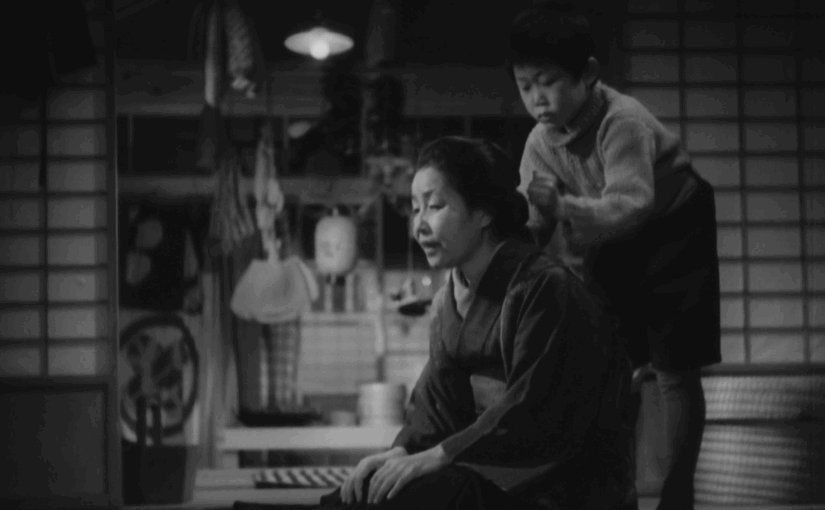Yasujirō Ozu | 1hr 12min

Whether they were abandoned, lost, or orphaned, young children were among the most impacted civilians of wartime Japan, making seven-year-old Kōhei one of many stranded without parents in Record of a Tenement Gentleman. Every survivor is dealing with their own struggles though, so when O-tane’s neighbour picks him up off the street, the question arises – why must this middle-aged widow be the one to take him in? If you ask her, it is because her friends agreed to randomly select who should be his carer, and she unfortunately drew the lot with an X on it. If you ask Tashiro or Tamekichi, the game was rigged so that all the lots were marked with an X, and she simply revealed hers first. To Yasujirō Ozu though, there is a maternal warmth beneath her spiky exterior that she might refuse to acknowledge, yet which predisposes her to the enormous responsibility of raising Kōhei.
Record of a Tenement Gentleman may be the closest this director of domestic dramas ever got to shooting a war film, rejecting the spectacle of battle for the quiet struggles of those whose homes were torn apart by bloodshed. Death and violence takes place entirely offscreen, never clarifying what led to the demise of O-tane’s husband, and only relaying the backstory of Kōhei’s bombed-out home through a neighbour’s brief exposition. The child’s father left for Japan to find work, we learn, and at some point along the way they were separated.“Your dad’s cold-hearted,” O-tane cynically reasons as they share food together atop a dune, overlooking a breezy, grey ocean.
“You didn’t get lost. You got abandoned.”
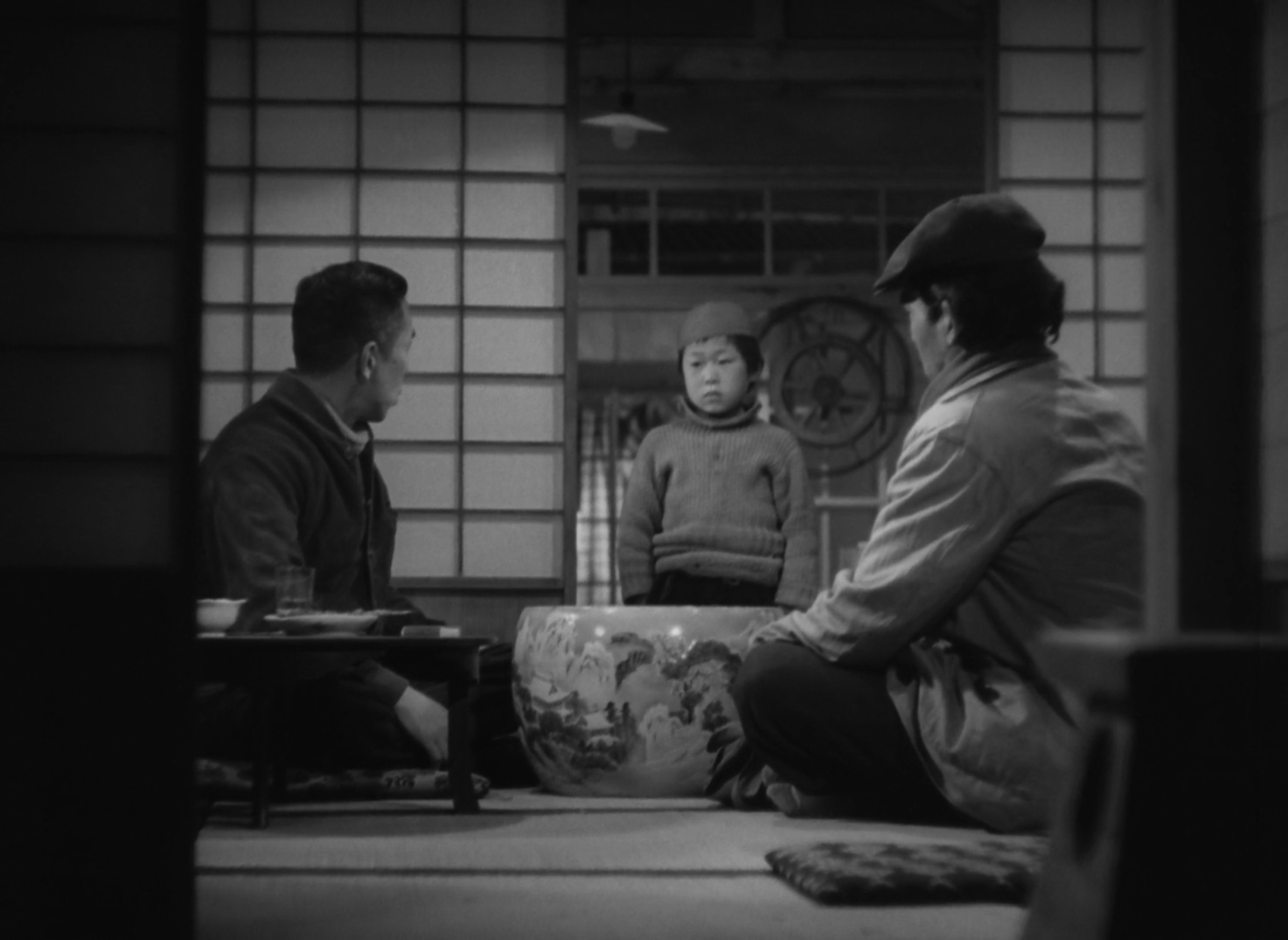
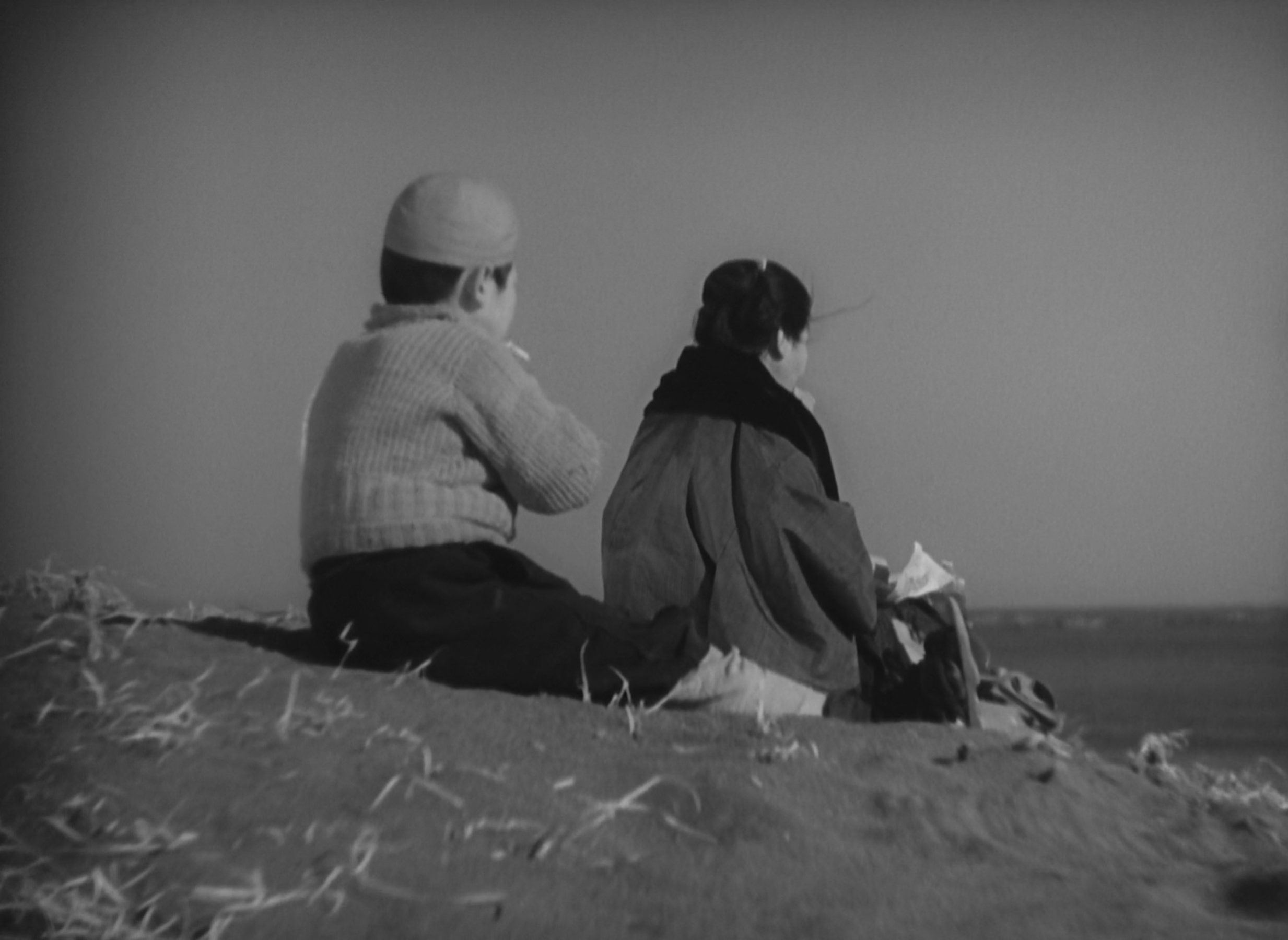
Perhaps this is her lack of faith in humanity speaking, or maybe it is her own justification to keep him by her side – not that she is terribly well-equipped as a mother. He is little more than a nuisance to her, earning her ire for failing to win a lottery draw, and repeatedly wetting his bed. Ozu’s storytelling through pillow shots is strong here, not only using his characteristic laundry montages to transition between scenes, but also frequently returning to the wet patch on his hanging sheets to reveal the chronic nature of this issue.
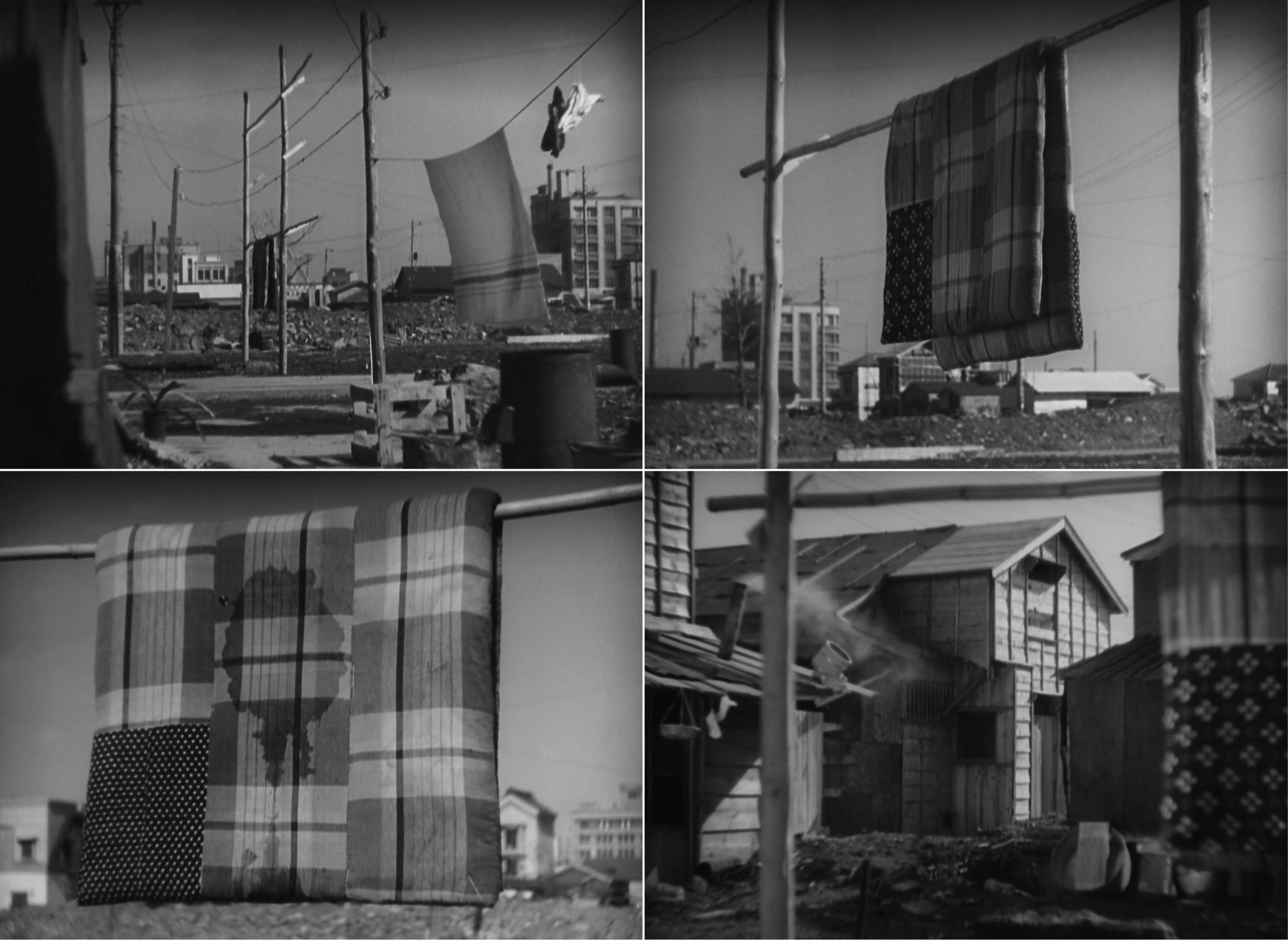
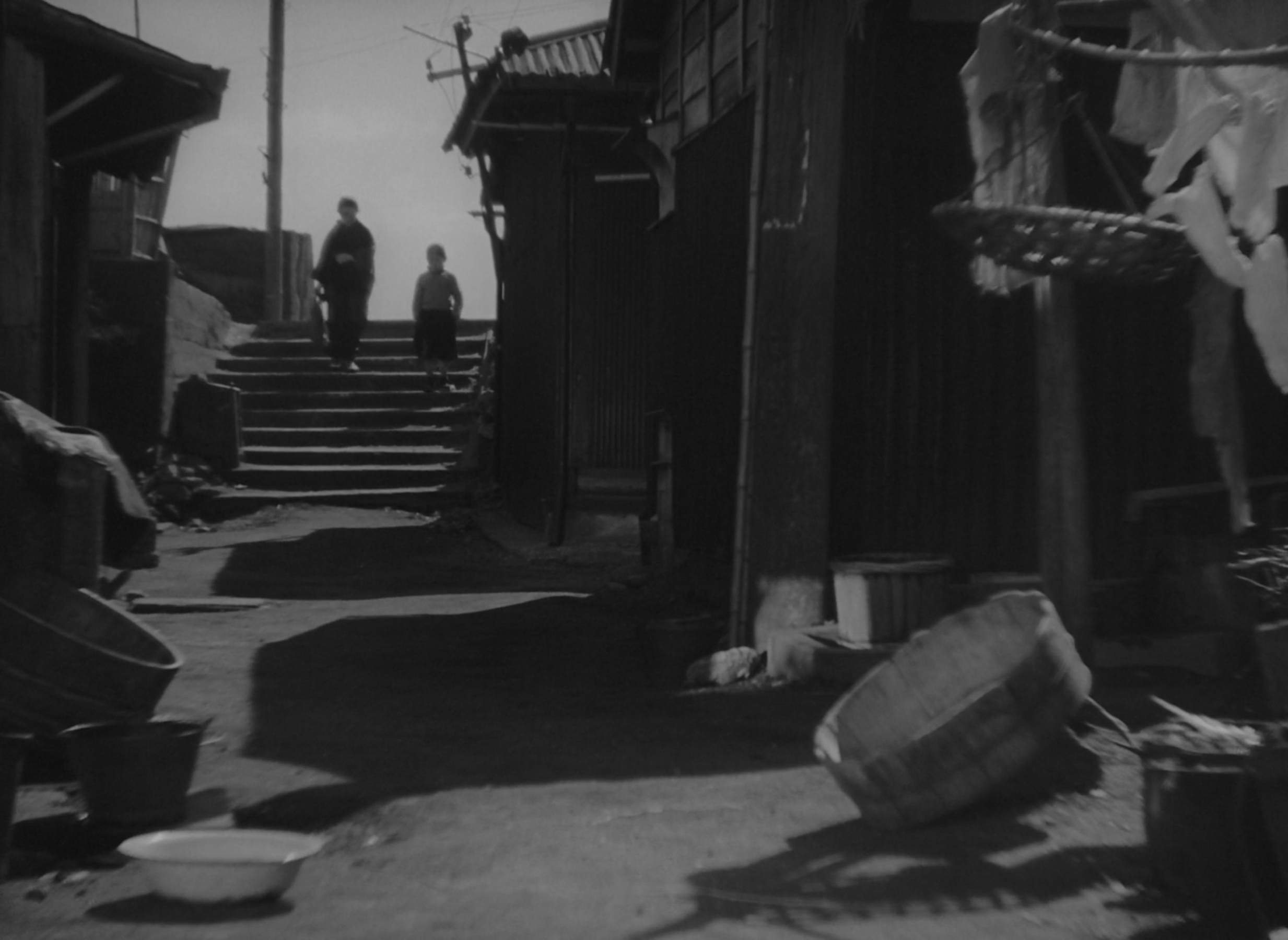
Through its elegant union of style and character, what is largely underrated as a minor Ozu film displays graceful, minimalist sophistication, building out Tokyo’s rundown districts and the people that inhabit them. His path may have never crossed with the Italian neorealists of the time, but his ability to find tenderness in mundane suffering certainly aligns with theirs, compassionately studying behaviours as simple as O-tane’s discontented grinding of flour. Hanging kitchen utensils clutter the ceiling in her home too, pressing down from above in isolating wide shots as she smokes alone, and serving a similar purpose as the obstructions so often framed in the foreground.
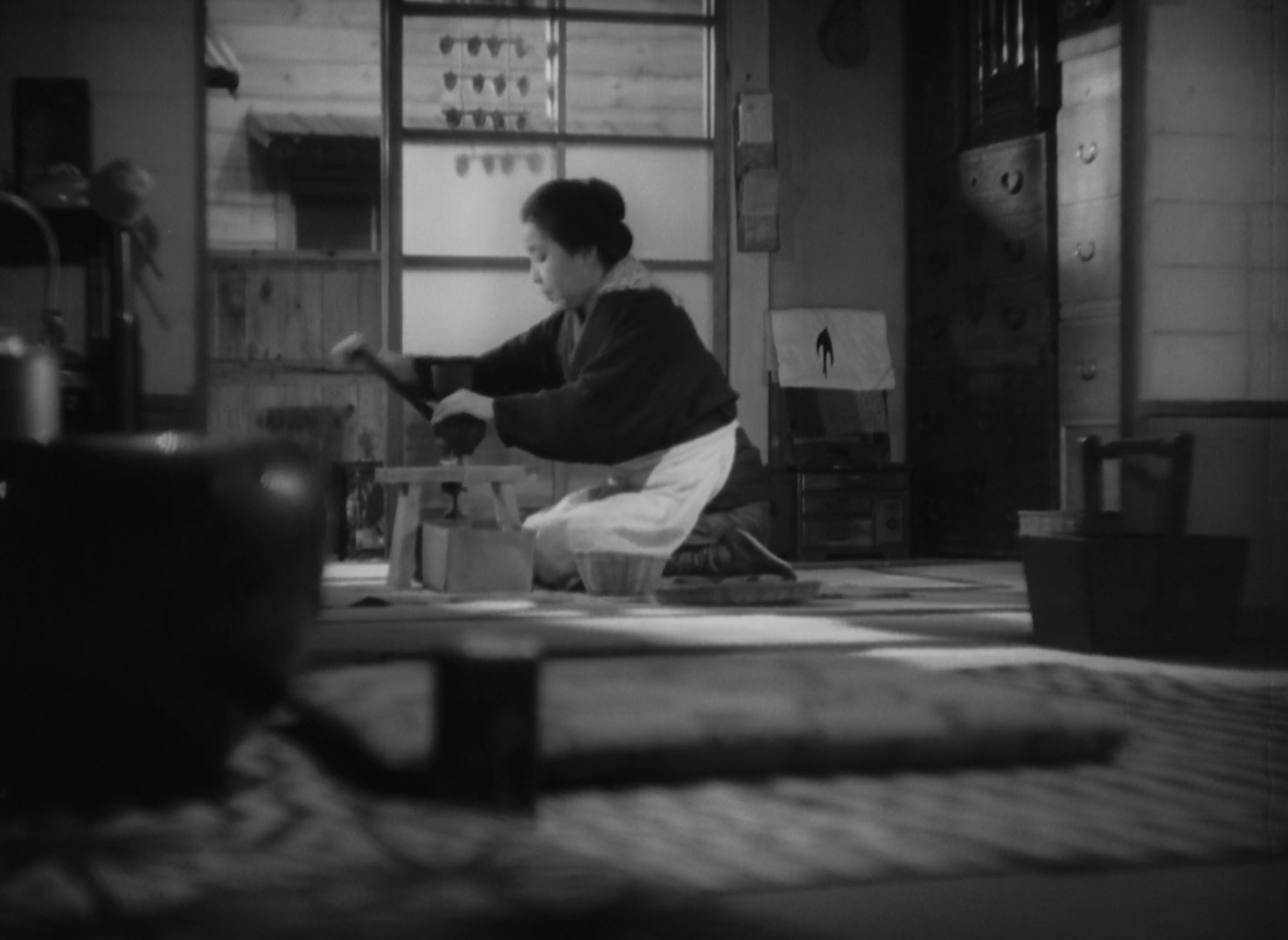
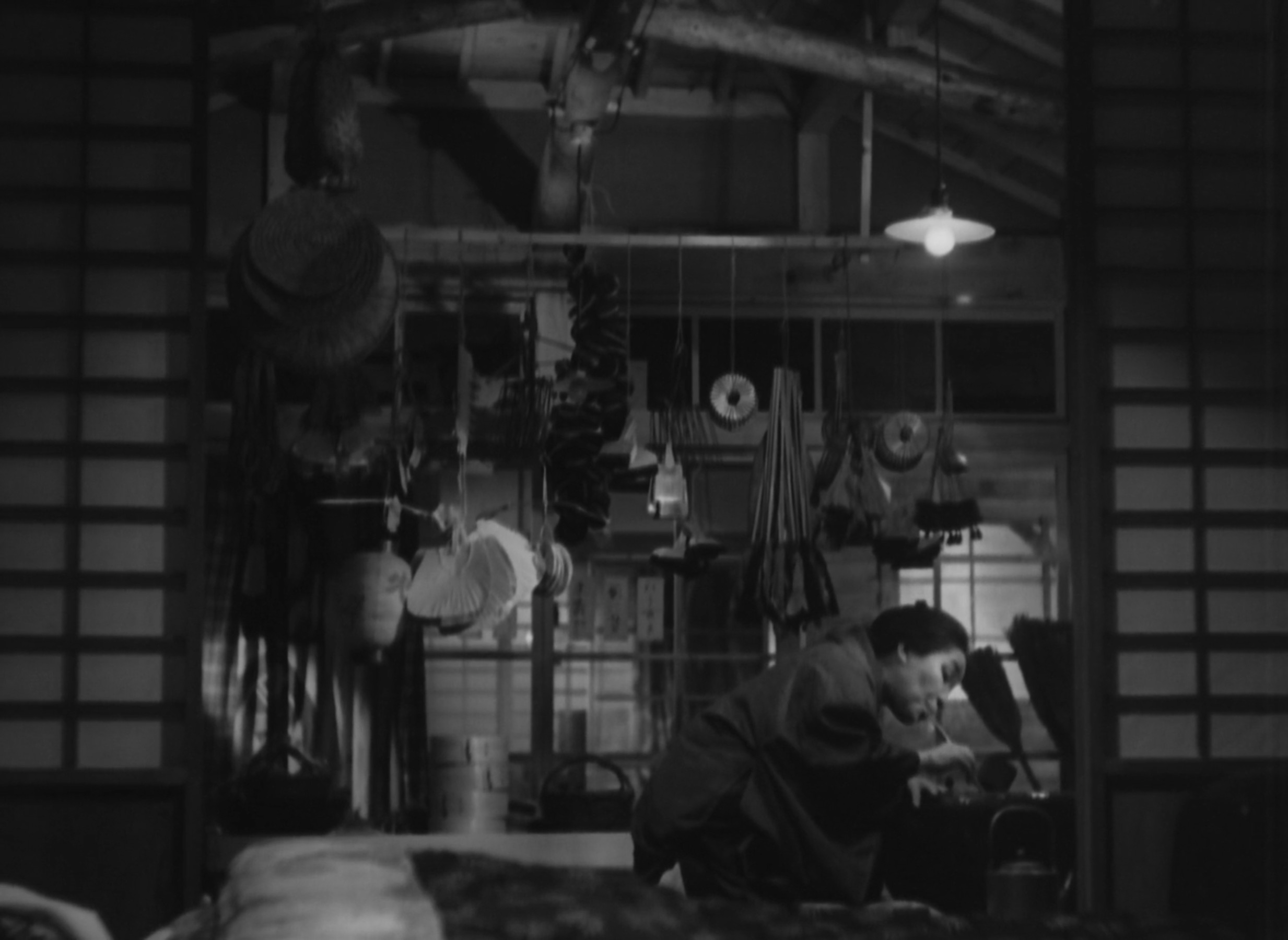
When Kōhei runs away one day out of fear of wetting the bed again, Ozu’s focus turns to the rundown streets of O-tane’s neighbourhood, joining her silent, uneasy search for this regretfully mistreated child. There, he lingers on street litter as it is lightly tousled by the breeze, as equally disregarded as those young children who pass their days fishing from the bridge. Their featured presence in cutaways all throughout Record of a Tenement Gentleman is impactful – they live on the periphery of society, yet they are crucial to Ozu’s portrait of innocence in mid-century Japan, particularly centring Kōhei as a generational symbol of resilience.
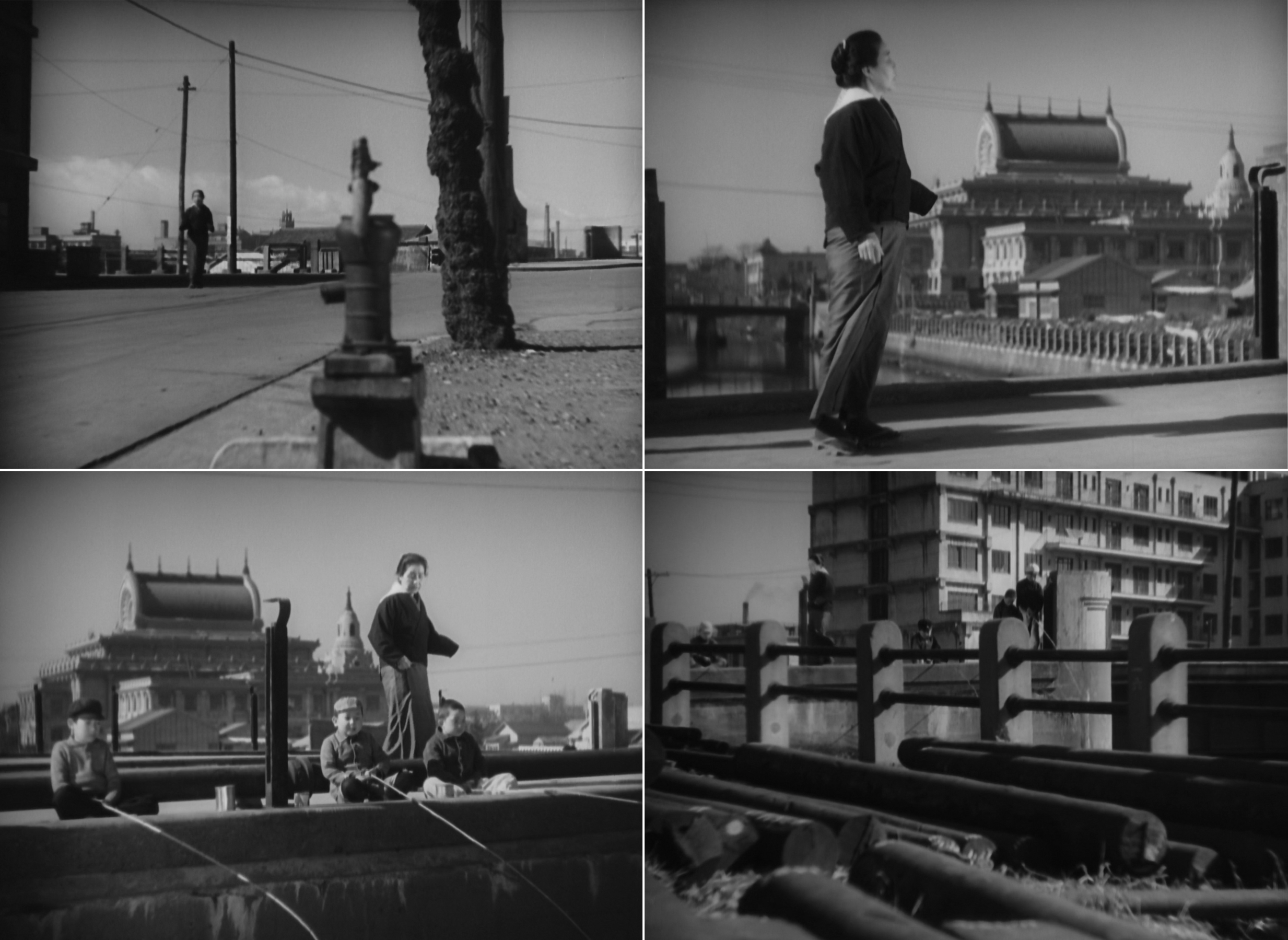
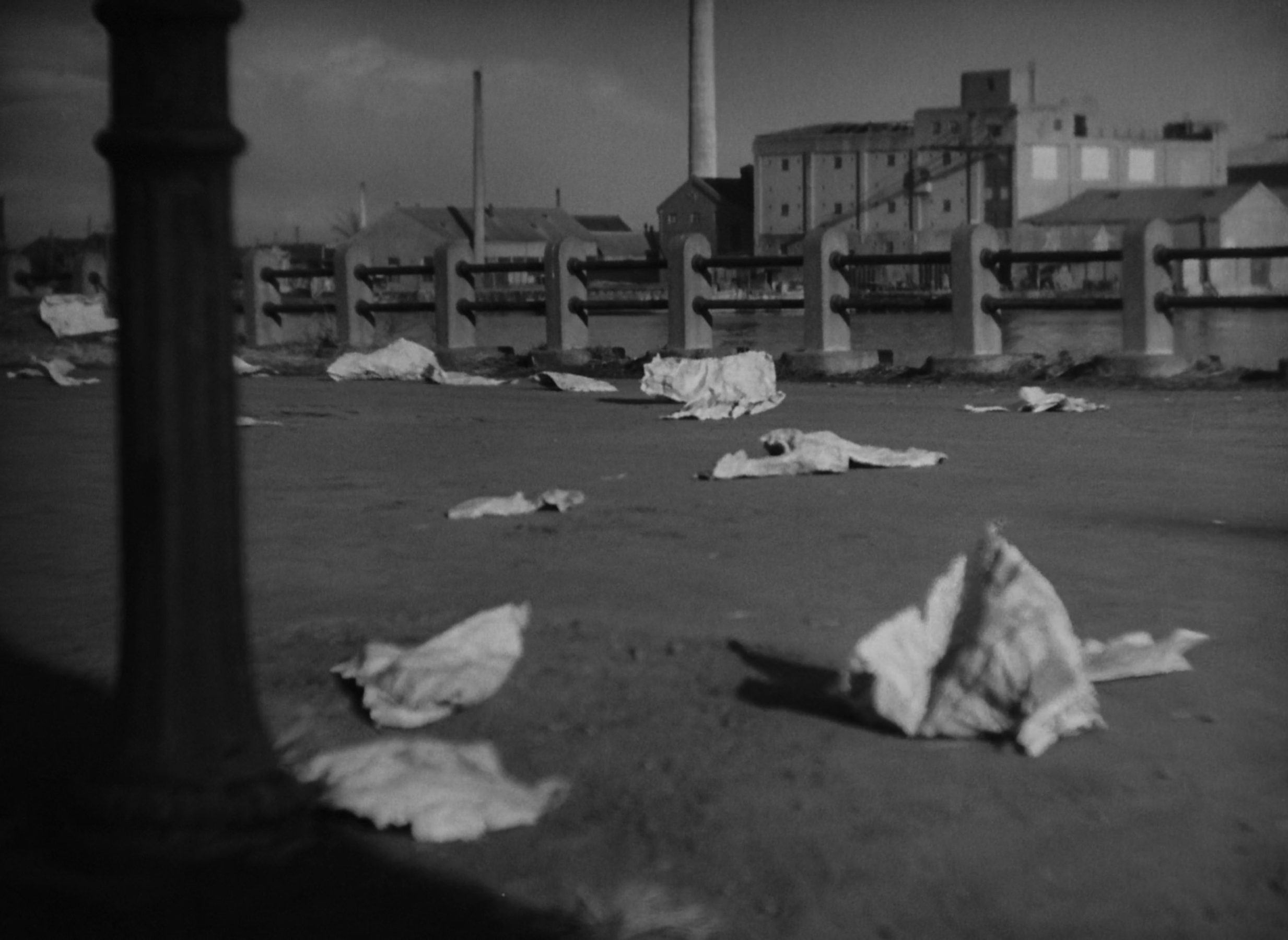
Upon this child’s safe return home, we see something shift in O-tane, lovingly spoiling him with a day trip to the zoo. “I’ve never felt like this before. Motherly love?” she wonders aloud to her friend, who humorously jabs back that she is more like a grandmother. For all the severity of these characters’ circumstances, Ozu maintains a gentle humour and levity in their interactions, making the unexpected arrival of Kōhei’s father to take him home all the more bittersweet.
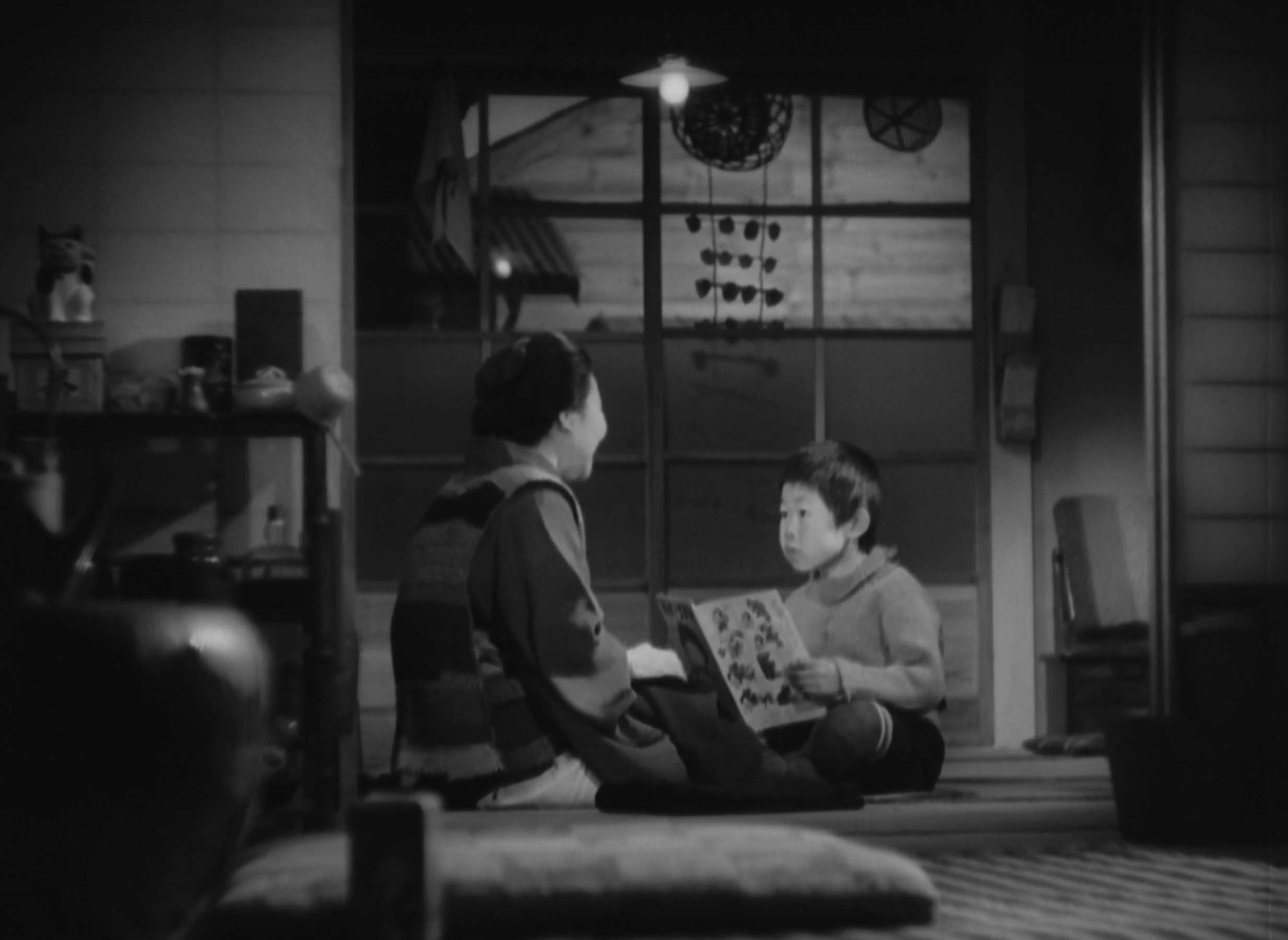
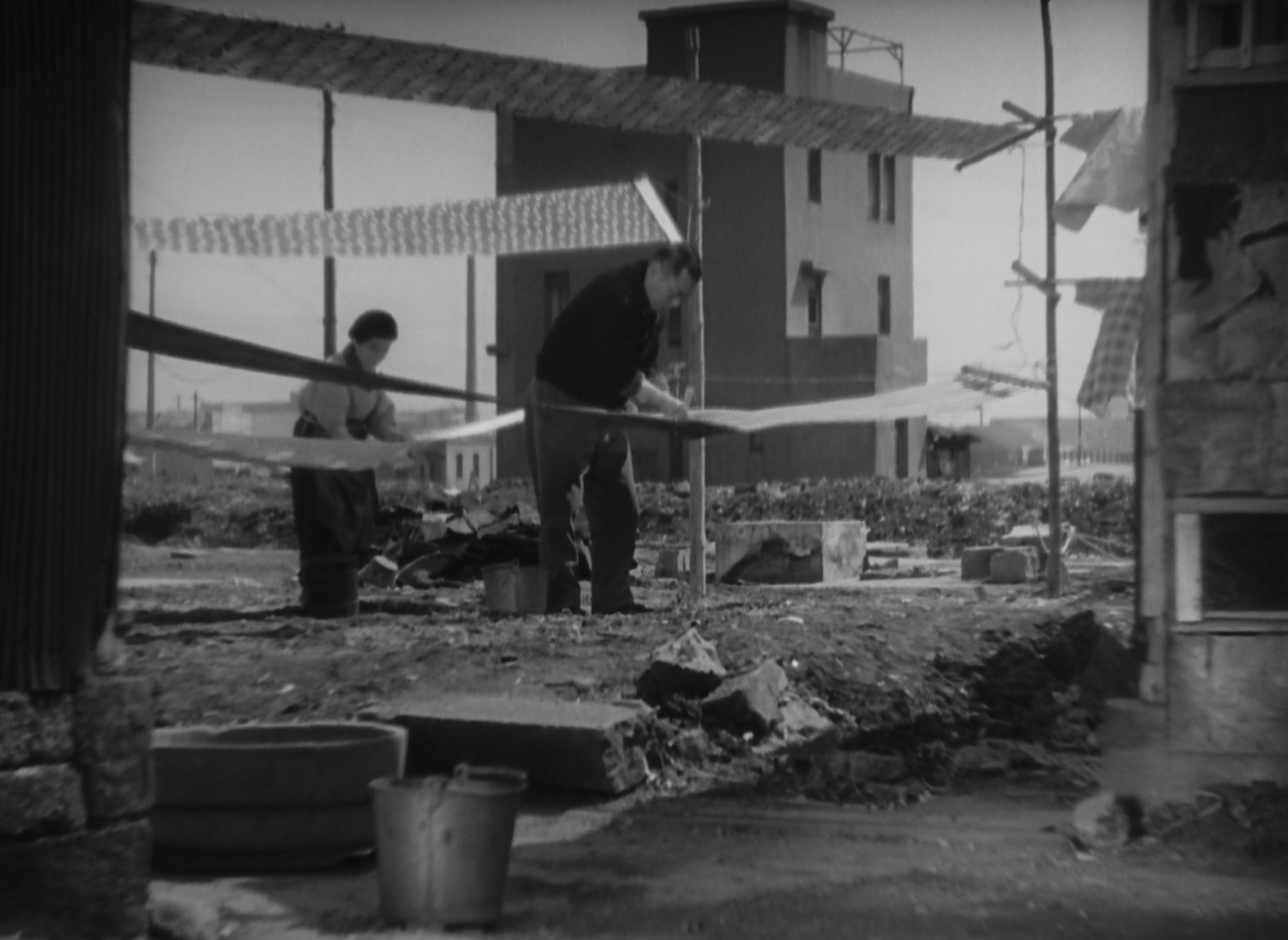
No longer does O-tane find the same satisfaction in her solitude as she did before, and in Kōhei’s absence, the world again becomes a cold and lonely place. Ozu would later refine the conclusion of his character arcs, delivering emotional gut punches in a single, devastating composition rather than a monologue as he does here with O-tane’s explicit moralising, speaking to the life-changing marvel of children. It is fortunate indeed then that Record of a Tenement Gentleman does not give her the final say, but rather returns to the children of Tokyo, this time playing in Ueno Park where she plans to adopt one. There, a statue of Takamori Saigō watches over them like a vigilant protector, connecting this dark period of Japanese history back to one of its greatest icons of honour. O-tane may not strike nearly impressive a figure as this noble samurai, yet as her broken nation emerges from the darkness of war, so too does she embrace a quiet, compassionate heroism of her own.
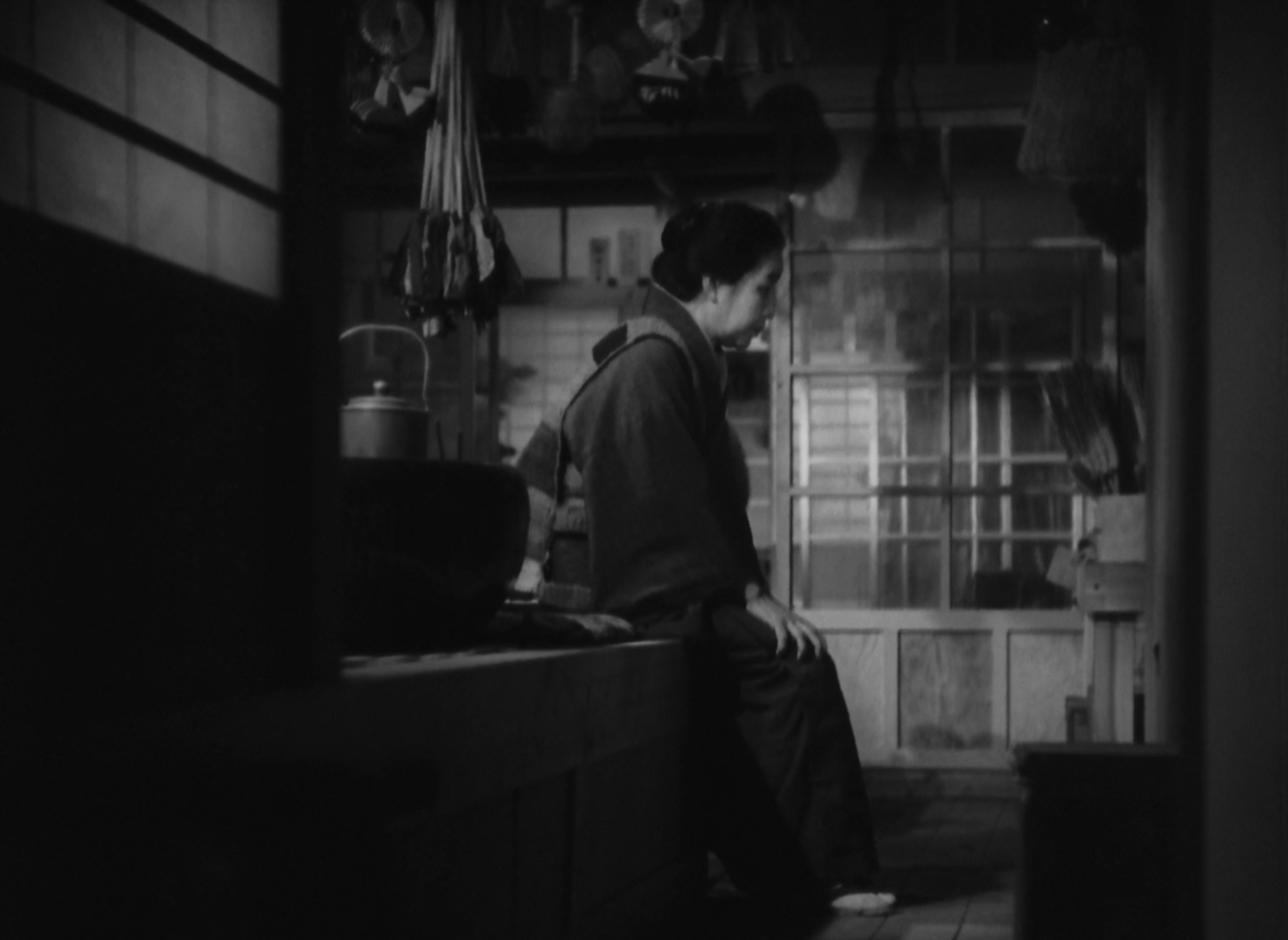
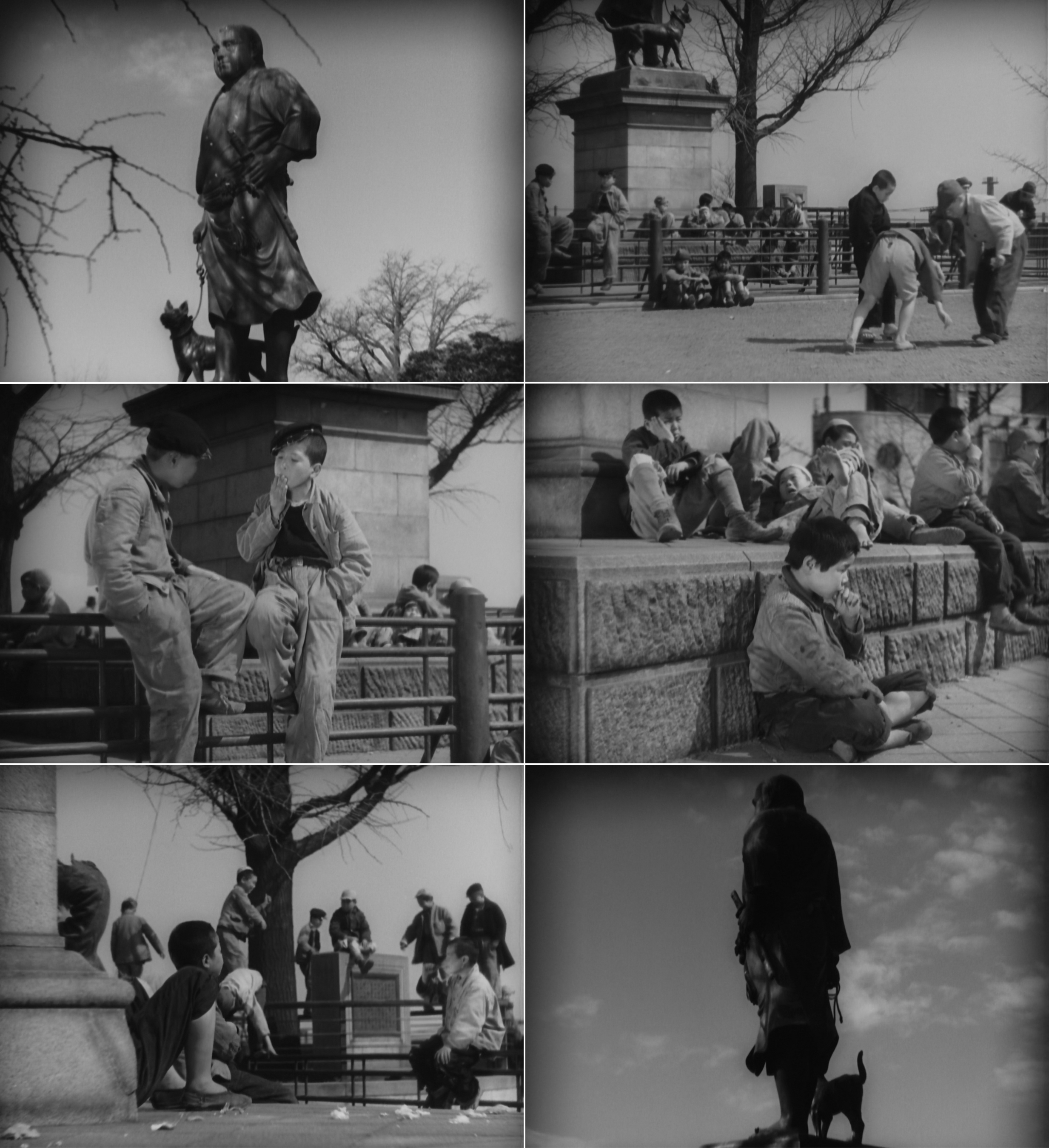
Record of a Tenement Gentleman is currently streaming on The Criterion Channel.

